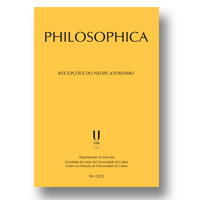|
articles |
|
1.
|
Philosophica: International Journal for the History of Philosophy:
Volume >
31 >
Issue: 1
Jonathan Head
Anne Conway on Omnipresence
abstract |
view |
rights & permissions
| cited by
This paper offers a discussion of Conway’s account of omnipresence, as found in her only published work, Principles of the Most Ancient and Modern Philosophy (1690). It is argued that Conway proposes a radical approach to understanding the nature of the divine presence in the world. After delineating different approaches to the question of omnipresence that can be found in the philosophical and theological tradition, it is argued that Conway offers a significant and original account that contrasts with the more traditional notions of divine presence based on God’s location, knowledge, power, and creative activity. This account is informed by an exploration of Conway’s underlying Platonist commitments and her arguments regarding the need for a mediating principle, “Christ” or “Adam Kadmon,” between God and creation. Following this, it is argued that there is a notion of omnipresence to be found in Conway’s philosophy centred on a Platonist-inspired “participation-presence,” which offers a dynamic sense of the growing presence of God in the world. The paper then concludes with some more general reflections upon the manner in which Conway’s account of omnipresence fits into the wider intellectual climate of the time, including radical reimaginings of both the nature of God and his presence in the world.
|
|
|
|
|
2.
|
Philosophica: International Journal for the History of Philosophy:
Volume >
31 >
Issue: 1
Samuel Kahn
Generating General Duties from the Universalizability Tests
abstract |
view |
rights & permissions
| cited by
In this paper, I argue that Kant gives a philosophically plausible derivation of the general duty of benevolence and that this derivation can be used to show how to derive other general duties of commission with the universalizability tests.The paper is divided into four sections. In the first, I explain Kant’s notion of a general duty. In the second, I introduce the universalizability tests. In the third, I examine and argue against an account in the secondary literature of how to derive general duties from these tests. In the fourth, I look at Kant’s derivation of the duty of benevolence in the Metaphysics of Morals, and I suggest how this reasoning can be extended to other duties.
|
|
|
|
|
3.
|
Philosophica: International Journal for the History of Philosophy:
Volume >
31 >
Issue: 1
Angélica Godinho da Costa, Camila Dutra Pereira
As implicações do conceito de igualdade no direito cosmopolita de Immanuel Kant
abstract |
view |
rights & permissions
| cited by
This text works on the concept of equality, which permeates several of Immanuel Kant’s works, especially in his critical period, in legal-political approaches. Moral equality and legal equality are presented in relation to other concepts such as liberty and independence. Considering that the author did not deal directly with the subject and did not consistently take a stand on his egalitarian or non-egalitarian views in the different contexts of his writings, we will bring our own analyzes and those of the philosopher’s interpreters, through selected pages from his books. Therefore, an overview of the issue in Kant’s works will be presented, emphasizing the contributions and limitations of his approach in the context of cosmopolitan law.
|
|
|
|
|
4.
|
Philosophica: International Journal for the History of Philosophy:
Volume >
31 >
Issue: 1
Vanessa Triviño
Exploring the Interactions between Metaphysics and Science:
Lessons from the Metaphysics of Biology
abstract |
view |
rights & permissions
| cited by
The debate in Metaphysics of Science concerning the interaction between metaphysics and science has been mainly approached from the perspective of the scientificdiscipline of physics. In this paper, I address this debate from a different framework, namely that of biology. I pay attention to the recent characterization of Metaphysics of Biology and the different forms in which philosophers use metaphysics when addressing conceptual biological problems. In doing so, I argue that two main lessons can be obtained that can serve to enrich the debate in Metaphysics of Science: i) that the interaction between metaphysics and science seems to be more complex than generally considered; and ii) that the type of metaphysics that is interacting with science when characterizing the ontological status of the world is neither the a priori nor the naturalized one, but a different form of metaphysics that will be labelled here as applied metaphysics.
|
|
|
|
|
book review |
|
5.
|
Philosophica: International Journal for the History of Philosophy:
Volume >
31 >
Issue: 1
Roel Wolters
Barry Stocker, Kierkegaard on Politics
view |
rights & permissions
| cited by
|
|
|
|





